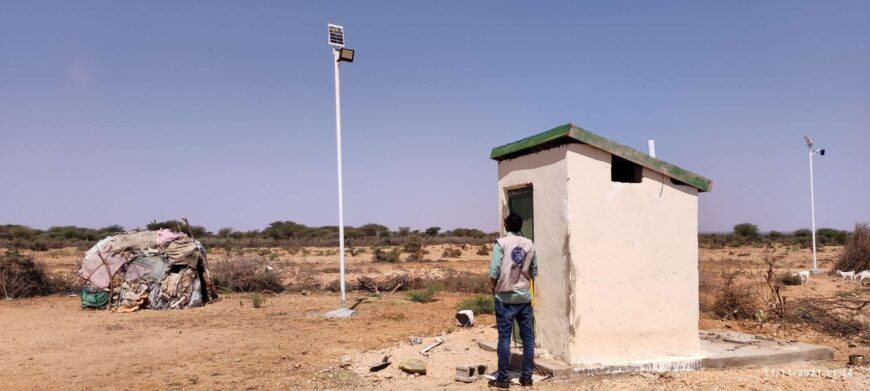Successive waves of displacement in Somaliland result from inter-clan conflict, desert locust infestations and the socio-economic impacts of COVID-19. Most notable, however, is the impact of the drought caused by the climatic shocks. Whilst droughts have become more frequent and prolonged, rainy seasons have become shorter and more unpredictable.
Strengthening coordination mechanisms to meet the needs of IDPs
| With funding from UNHCR, ACTED is undertaking critical Camp Coordination and Camp Management (CCCM) activities across 19 sites in Hargeisa, which host some 93,000 Internally Displaced People (IDPs). CCCM is a technical sector that coordinates the temporary assistance and protection activities for displaced persons living in camps or camp-like settings (including all temporary communal shelter options such as formal camps, collective centres, communal buildings, spontaneous settlements, transit centres, evacuation centres, reception centres or those that may require relocation due to proximity to hazard, insecurity, or eviction). Some of the activities of CCCM include: – household registration – site planning/layout, site maintenance and improvements – formation of governance structures and community groups – establishment and management of complaints and feedback mechanisms ACTED contributes to site selection, planning, monitoring, and implementation efforts for the benefit of 15,555 displaced families. |
The light at the end of the tunnel
Most of the IDP settlements are built with ragged clothes, plastic sheets, and locally available materials. The shelters are in poor condition, many are unsafe for their occupants as they show signs of vulnerability to heavy rains and strong winds. The sites are dark at night, and few lighting options are available. The limited lighting means that the protection of IDPs is a daunting task. Once it gets dark, they stare at the risk of theft, with women being vulnerable victims of sexual abuse.
As for the residents of the sites, the majority are pastoralists who have been pushed to the cities after losing their livestock and livelihoods to extreme drought. Inside the camps, they are now struggling to adapt to the non-pastoralist way of life and to make a living.
To enhance the safety of IDP camps and facilitate the displaced population’s movement at night, ACTED and the community committees selected the sites that were most in need of lighting and installed solar streetlights.

Hamza* is 62 years old and a father of 11 children. With his family, he lives in Yamayska IDP site, one of the locations selected for the installation of solar-powered streetlights.
Before this facility was installed, there was no lightning in place and it was difficult for the population to move within the camp or to go outside their houses at night.
It was risky for women to leave the houses after 6 p.m., even when it was necessary, unless they were escorted by men
The solar-powered streetlights cover most of the site’s lighting needs, allowing families to live safely and to access areas they could not go at night.
*The name has been changed to protect the identity of the beneficiary.
As part of its initiative to monitor service coverage and protection risks within IDP settlements, ACTED continuously collects available information at the site level, including service provision and population data, to identify gaps and duplication in the response. This allows ACTED to highlight site-level needs and advocate for sector-specific interventions in sites where support is greatly needed.
